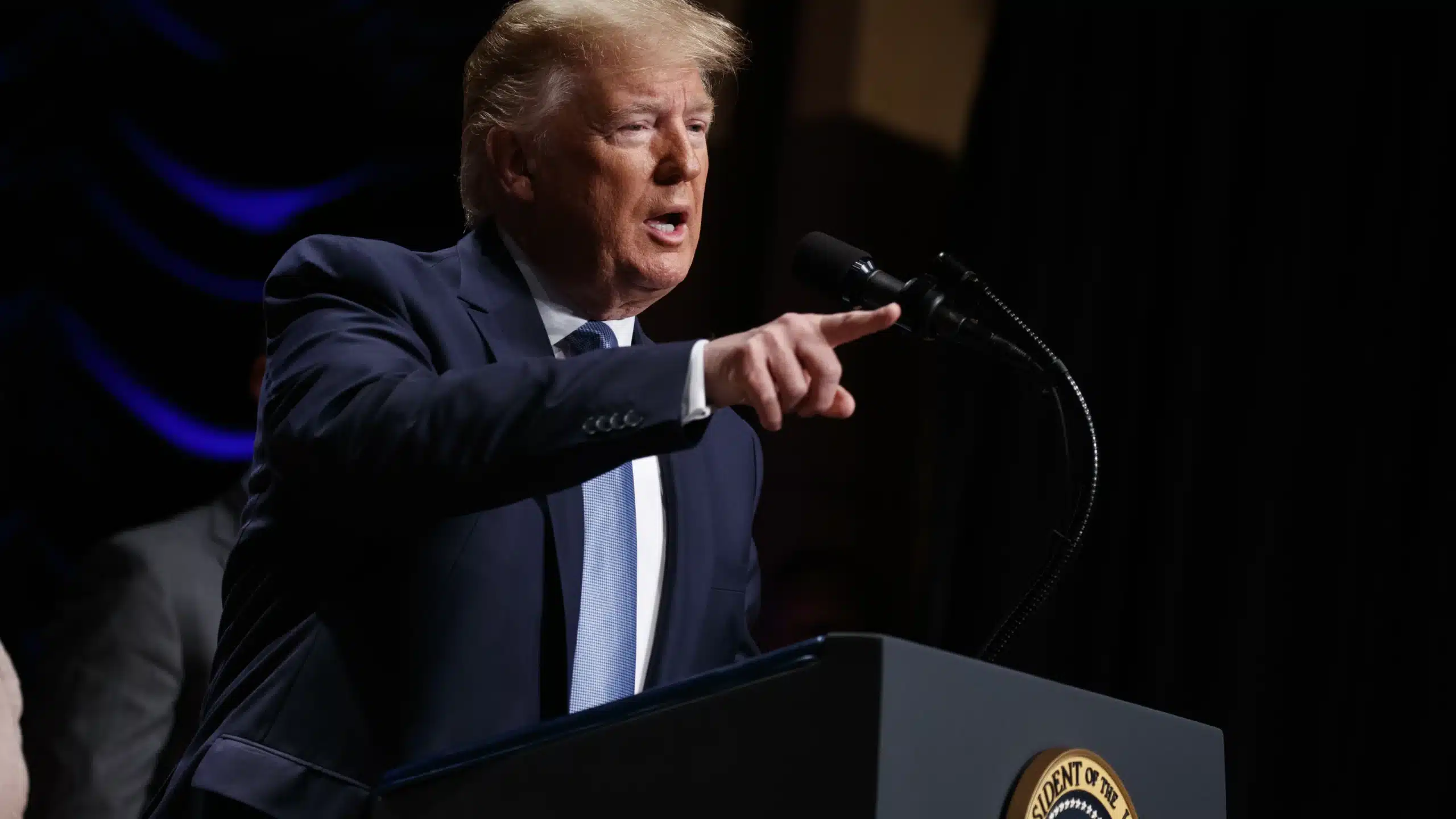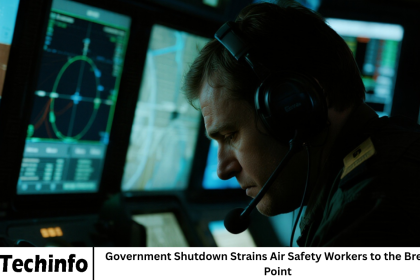The city of Chicago has once again found itself at the center of a heated debate over federal operations, local governance, and the balance between national security and community trust. This time, the controversy stems from Homeland Security’s recently launched initiative known as “Operation Midway Blitz,” a large-scale enforcement effort carried out with minimal notice to city officials. Chicago’s mayor has spoken out strongly against the lack of communication from federal authorities, raising pressing questions about transparency, public safety, and the fragile relationship between local leadership and federal agencies.
- Understanding Operation Midway Blitz
- Chicago’s Mayor Speaks Out
- The Federal Perspective
- Community Reactions and Public Concerns
- Historical Context of Federal Operations in Chicago
- The Balance Between Security and Local Governance
- Political Implications for the Mayor
- The National Debate Over Federal Transparency
- Potential Paths Forward
- What Experts Are Saying
- FAQs
- Conclusion
The unfolding tension between City Hall and Homeland Security captures a broader struggle in American cities: the challenge of balancing national security measures with community engagement and municipal oversight. At its heart lies a fundamental debate—how much should local governments be informed before federal operations are carried out in their neighborhoods, and what consequences emerge when that line of communication breaks down?
Understanding Operation Midway Blitz
Operation Midway Blitz is the latest federal initiative targeting organized crime, narcotics trafficking, and suspected threats to public safety in major transit hubs, with Chicago’s Midway International Airport identified as a key focal point. According to federal officials, the operation is part of a nationwide strategy designed to disrupt criminal networks that use airports and surrounding neighborhoods as conduits for illicit activity.
Homeland Security has emphasized that the operation is intelligence-driven, relying on months of surveillance, data collection, and coordination with select federal partners. Reports suggest that the effort involves heightened security screenings, surprise raids, and intensified monitoring of cargo shipments moving through Midway.
While federal authorities describe the effort as a “necessary and decisive step” to protect national security, city officials—including the mayor—have criticized the lack of transparency. The mayor argued that failing to provide adequate notice not only undermines trust but also places residents, businesses, and even law enforcement officers at unnecessary risk.
Chicago’s Mayor Speaks Out
The mayor’s sharp criticism underscores a longstanding friction between federal agencies and local governments when it comes to communication and cooperation. In a press conference held shortly after the operation’s launch, the mayor stated, “Our city is not a staging ground for federal theater. When operations of this scale take place, our residents deserve transparency, and our local departments deserve coordination. Dropping this on Chicago without notice is unacceptable.”
The statement reflected deep frustration over a perceived lack of respect for municipal authority. City Hall has insisted that federal agencies notify local law enforcement and emergency services ahead of such sweeping operations. Doing so, the mayor argued, allows the city to prepare its own personnel, protect residents, and mitigate the risk of unnecessary panic or disruption.
The Federal Perspective
From the standpoint of Homeland Security, secrecy is part of the strategy. Officials argue that advance notice could compromise operations, tip off criminal networks, and hinder the element of surprise necessary for arrests and seizures. A spokesperson defended the lack of communication, stating, “Operations like Midway Blitz require confidentiality to be effective. We understand the concerns of local leaders, but public safety and national security must come first.”
This rationale highlights a fundamental divide: federal agencies prioritize secrecy to maximize enforcement outcomes, while local leaders stress accountability and community trust. Bridging this gap remains one of the most difficult challenges in coordinating security operations across government levels.
Community Reactions and Public Concerns
For residents living around Midway International Airport, Operation Midway Blitz has sparked anxiety and confusion. Reports of federal agents flooding the area, conducting late-night raids, and increasing security checks have unsettled many. Community leaders have raised concerns that such operations, when carried out without prior communication, erode trust between residents and law enforcement.
Some business owners near the airport reported disruptions in deliveries and customer traffic, while travelers complained about extended wait times and invasive questioning at checkpoints. Civil rights groups have also voiced alarm, warning that the operation may disproportionately target immigrant communities in Chicago, fueling fear and mistrust.
A local community organizer remarked, “Chicago has a long history of federal overreach without consultation. These surprise operations don’t just disrupt criminal activity—they disrupt families, neighborhoods, and the fragile trust we’ve worked so hard to build.”
Historical Context of Federal Operations in Chicago
Chicago is no stranger to high-profile federal interventions. From historic mob crackdowns to more recent anti-gang initiatives, the city has often served as a testing ground for federal enforcement strategies. However, these efforts have frequently sparked criticism for their heavy-handed tactics and limited coordination with local authorities.
For example, during previous Department of Justice operations, Chicago officials raised similar concerns about lack of transparency and the potential for community harm. The pattern suggests that Operation Midway Blitz is not an isolated incident but part of a recurring struggle over jurisdiction and oversight.
The Balance Between Security and Local Governance
The debate over Operation Midway Blitz raises a broader question: how can federal and local governments strike a balance between maintaining secrecy for national security and ensuring accountability to the communities directly impacted?
Experts argue that both sides have legitimate concerns. On one hand, surprise is often critical in dismantling criminal networks. On the other hand, leaving city officials in the dark risks public confusion, safety hazards, and long-term damage to trust in government institutions.
According to Dr. Hannah Morrison, a professor of public policy at Northwestern University, “The success of security operations cannot be measured by arrests alone. It must also be measured by the trust and cooperation of local communities. Without transparency and partnership, even the most effective enforcement actions can backfire.”
Political Implications for the Mayor
The mayor’s outspoken criticism of Homeland Security is not only a defense of local governance but also a political move with broader implications. In a city like Chicago—where federal involvement in local affairs has long been a contentious issue—standing up to Washington can bolster the mayor’s image as a defender of community interests.
However, critics argue that the mayor’s stance could strain relationships with federal partners at a time when cooperation is essential to address crime and public safety challenges. If the standoff escalates, it could have lasting consequences for how Chicago and Homeland Security coordinate in future operations.
The National Debate Over Federal Transparency
While Chicago is the focal point of the current controversy, the debate extends far beyond the city’s borders. Across the country, local leaders have expressed frustration with federal agencies carrying out high-profile operations with minimal consultation. Cities like Portland, Los Angeles, and New York have seen similar disputes, raising the possibility of a broader reckoning over federal-local relations.
Civil liberties advocates argue that the issue is not simply about notice but about accountability. They warn that unchecked federal power can lead to abuses, targeting of vulnerable communities, and erosion of democratic principles. For these advocates, the controversy in Chicago is a microcosm of a larger national struggle over how power is exercised and shared in the United States.
Potential Paths Forward
To address the fallout from Operation Midway Blitz, policy experts suggest several potential paths forward:
- Formal Notification Protocols – Establishing clear guidelines requiring federal agencies to provide at least limited notice to city officials before launching major operations.
- Joint Task Forces – Expanding partnerships where local and federal officials jointly plan and execute operations, ensuring both secrecy and local oversight.
- Community Engagement Measures – Creating avenues for residents to receive post-operation briefings that explain the purpose, scope, and outcomes of such initiatives, fostering transparency.
- Oversight Mechanisms – Strengthening congressional and judicial oversight to ensure that federal operations respect constitutional rights and local governance structures.
These measures could serve as a blueprint for avoiding future clashes while still allowing federal authorities to pursue their missions effectively.
What Experts Are Saying
Security analysts, legal scholars, and political commentators have weighed in on the controversy, offering a range of perspectives. Some argue that the mayor is right to demand transparency, pointing out that withholding notice risks alienating the very communities federal agencies rely on for intelligence and cooperation. Others contend that the stakes of national security justify the secrecy, particularly when dealing with organized crime and terrorism threats.
According to a recent poll conducted by a local Chicago newspaper, 57 percent of residents agreed with the mayor’s position that federal agencies should provide notice before operations, while 32 percent supported Homeland Security’s approach of secrecy. The numbers highlight the divided public opinion on the matter, further complicating the debate.
FAQs
What is Operation Midway Blitz?
Operation Midway Blitz is a Homeland Security initiative targeting criminal networks and potential threats at Chicago’s Midway International Airport. The operation involves heightened security measures, raids, and intelligence-driven enforcement efforts.
Why is Chicago’s mayor criticizing the operation?
The mayor criticized Homeland Security for failing to notify city officials in advance. The concern is that a lack of transparency undermines trust, creates risks for residents, and prevents local departments from preparing effectively.
How has the public reacted to Operation Midway Blitz?
Reactions have been mixed. Some residents support the operation as a necessary step to ensure security, while others express fear, frustration, and mistrust over the lack of communication and potential targeting of immigrant communities.
What are the risks of not notifying local authorities?
Without notification, local emergency services and law enforcement may be caught off guard, increasing the risk of confusion, safety hazards, and strained relationships between federal and municipal agencies.
Could this controversy impact future federal-local cooperation?
Yes. Tensions from Operation Midway Blitz may complicate future collaboration between Chicago and federal agencies. Both sides may need to negotiate new protocols to ensure operations are effective while respecting local governance.
Conclusion
The controversy surrounding Operation Midway Blitz underscores the fragile balance between federal power and local governance in the United States. Chicago’s mayor has made a forceful case for transparency and accountability, highlighting the risks of excluding municipal leaders from decisions that directly impact their communities. Homeland Security, on the other hand, defends secrecy as a necessary element of effective enforcement.
Ultimately, the debate reflects a larger national struggle over how to protect security without sacrificing democratic values and community trust. For Chicago, the lessons from this clash will likely shape how future operations unfold—and whether the city can find common ground with federal authorities. What remains clear is that effective governance requires not only decisive action but also open dialogue, respect for local authority, and an unwavering commitment to the communities most affected.










